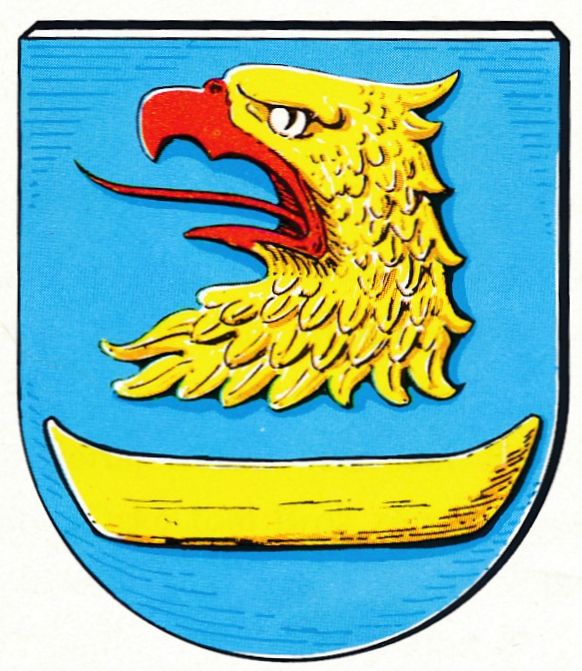Canhusen: Difference between revisions
Jump to navigation
Jump to search
Knorrepoes (talk | contribs) m (Text replacement - "===Official blazon=== *(de) " to "{| class="wikitable" |+Official blazon |- |'''German''' | ") |
Knorrepoes (talk | contribs) m (Text replacement - "|'''German''' | ===Origin/meaning===" to "|'''German''' | |- |'''English''' | {{blazon wanted}} |} ===Origin/meaning=== ") |
||
| Line 14: | Line 14: | ||
|'''German''' | |'''German''' | ||
| | | | ||
|- | |||
|'''English''' | |||
| {{blazon wanted}} | |||
|} | |||
===Origin/meaning=== | ===Origin/meaning=== | ||
The arms show a canoe, which was found in the moors before the second world war. It dated from prehistoric times. It was burned during the war. The eagle is derived from the arms of the Allena family, who owned the (now destroyed) castle in Canhusen since the 14<sup>th</sup> century. | The arms show a canoe, which was found in the moors before the second world war. It dated from prehistoric times. It was burned during the war. The eagle is derived from the arms of the Allena family, who owned the (now destroyed) castle in Canhusen since the 14<sup>th</sup> century. | ||
Revision as of 11:01, 5 July 2022
This page is part of the German heraldry portal Deutsche Wappensammlung |
Heraldry of the World |
|
German heraldry:
|
Selected collector's items from Germany:
|
CANHUSEN
State : Niedersachsen
District (Kreis) : Aurich (until 1976 Norden)
Incorporated into : 1976 Hinte
| German | |
| English | No blazon/translation known. Please click here to send your (heraldic !) blazon or translation |
Origin/meaning
The arms show a canoe, which was found in the moors before the second world war. It dated from prehistoric times. It was burned during the war. The eagle is derived from the arms of the Allena family, who owned the (now destroyed) castle in Canhusen since the 14th century.
Contact and Support
Partners:
Your logo here ?
Contact us
© since 1995, Heraldry of the World, Ralf Hartemink 
Index of the site
Literature : Leiner, K. : Panorama Norden. Norden, 1972.












